Recent statistics show that more than 90 million Americans will experience dizziness at some time during their lives. The good news is that 80-90 percent of suffers can find relief at the Silverstein Institute with the Nation’s leading authorities on dizziness and balance disorders. Dr. Jack Wazen is an author on a book, titled Dizzy, what you need to know about managing and treating balance disorders. Dr. Wazen uncovers the root causes of this disabling, difficult-to-diagnose syndrome and shares the therapies and techniques that can return patients’ lives to normal.
Dizziness, vertigo disequilibrium. They are not the same, what is the difference?
The term dizziness is very general so experts created categories to help doctors better diagnose and manage patients. There is a difference between dizziness and vertigo. Dizziness describes a feeling of lightheadedness, faintness or giddiness. There are many different types of dizziness:
- Near-faint dizziness
- Psychophysiologic dizziness
- Ocular dizziness
- Ocular dizziness
- Multisensory dizziness
Vertigo, is the illusion that either you or the environment around you is spinning, rotating, rolling, rocking, or whirling. In some cases, people experience the sensation of tilting.
Disequilibrium is the sensation of being unsteady or in a state of disequilibrium – imbalance occurs only when people are standing or walking.
Diagnosing patients with dizziness, vertigo or imbalance
A physician will diagnose your particular problem by performing a complete medical history, a neurotologic examination and tests of hearing and balance function. Blood test for allergies, autoimmune inner ear disease or hormonal imbalance may also be necessary. Imaging studies with a CT or MRI and a consultation with neurologist or cardiologist might be indicated. Once a diagnosis has been made a plan of treatment is established and discussed with the patient and family.
- Inner Ear Disorder
- Benign paroxysmal positional vertigo
- Menieres Disease
- Recurrent vestibulopathy
- Motion sickness
- Labyrinthitis
- Vestibular Neuronitis
- Perilymphatic fistula
- Ear infections
- Ear trauma
- Cholesteatoma
- Otosclerosis
- Treatment Plans
- Medical Procedures
- Surgical Procedures
- Dietary treatment
- Vestibular Rehabilitation Therapy




